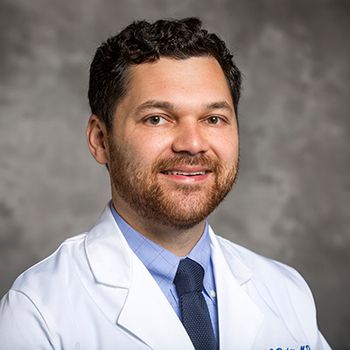
Oncology NEWS International
- Oncology NEWS International Vol 4 No 6
- Volume 4
- Issue 6
Counseling Must Go Hand in Hand With Genetic Testing for Breast Cancer
NEW YORK--What should have been good news for a woman whose family had a history of breast cancer--that she did not carry the breast cancer gene (BRCA1)--proved bittersweet, since the woman had had bilateral prophylactic mastectomies 5 years earlier.
NEW YORK--What should have been good news for a woman whose familyhad a history of breast cancer--that she did not carry the breastcancer gene (BRCA1)--proved bittersweet, since the woman had hadbilateral prophylactic mastectomies 5 years earlier.
"This woman had a hard time deciding whether she wanted toknow her results," said Barbara Weber, MD, associate professorof medicine and genetics and director, breast cancer program,University of Pennsylvania School of Medicine, Philadelphia.
The story points out the perils of genetic testing and the needfor women to receive professional counseling about their risk,as well as prophylactic options if the test is positive, Dr. Webersaid at the American Society of Breast Disease and New York MetropolitanBreast Cancer Group meeting.
"We tend to use cumulative risk in counseling women,"she said. "We can tell a woman who carries the BRCA1 mutationthat her risk of getting breast cancer by the time she is 40 is15%; by age 50, 60%; by age 60, 70%; and by age 80, 85%. . . .That gives women a much better idea of what their risk actuallyis over a certain time period."
Although a woman carrying a BRCA1 mutation has an 87% lifetimecumulative risk of breast cancer, if she is from a high-risk familybut did not inherit the mutation, her risk is closer to 11%, thegeneral population risk. "In fact, it may be even lower thanthat," Dr. Weber said, "because the 11% risk calculationincludes all women with a family history."
Thus, counseling women from inherited breast cancer families isdifficult, because "either they inherited the mutation, andtheir risk is very high, or they didn't, and their risk is verylow," she said. In addition, more than half of the risk inthe women who carry the mutation occurs before the age of 50.
Many of these women mistakenly think that their risk is 50%. "Theirrisk of inheriting the mutation that predisposes them to breastcancer may be 50%, but within these families, virtually nobody'srisk appears to be 50%," Dr. Weber said.
Once a woman is identified as a BRCA1 mutation carrier, counselingher about treatment options is also problematic. There are noprospective studies showing that increased surveillance or prophylacticsurgery reduces the risk of dying of breast cancer in these high-riskfamilies, Dr. Weber said.
"Chemoprevention, of course, is what we would prefer . .. but unfortunately a proven chemopreventive option is probablya long way off," she said.
Dr. Weber described two dramatic situations that arose in a familybeing tested for the BRCA1 mutation: A woman, identified as aBRCA1 mutation carrier, opted for bilateral oophorectomies andbilateral mastectomies with reconstruction, at a cost of about$50,000. Her insurance company refused to cover the procedureson the grounds that they constituted preventive medicine.
When, with the woman's permission, her physicians disclosed hergenetic testing results, the insurance carrier again turned herdown, this time on the grounds that this was a preexisting condition.Finally, the hospital agreed to underwrite the cost. As it turnedout, breast cancer that was not visible by mammography was diagnosedat the time of the prophylactic mastectomies.
In the second situation, a man with three daughters, all in their30s, did not want to know his BRCA1 results; his daughters did.None of the daughters turned out to be carriers, so the man mayor may not have been a carrier, and was none the wiser.
Six months later, Dr. Weber discovered that the reason this mandid not want to know his genetic testing results had nothing todo with the BRCA1 mutation. Rather, his reluctance derived fromhaving spent his entire life believing that his biologic fatherwas his uncle.
"He correctly surmised that we would be able to figure thisout from this kind of genetic testing. . . . That is somethingthat you don't run into with, say, a liver function test,"Dr. Weber said.
Articles in this issue
over 30 years ago
IDEC-C2B8 Antibody Is in Phase III Testing for B-Cell Lymphomaover 30 years ago
Dr. Peters Named Head of the Michigan Cancer Foundationover 30 years ago
Broad-Spectrum Sunscreens Block UVA and UVBover 30 years ago
Trials of AccuSite Injectable Gel From Matrix Begin in Basal Cell Caover 30 years ago
Outpatient ABMT at Duke Leads to Savingsover 30 years ago
Algorithm Optimizes Value of CA125 II Screening for Ovarian Caover 30 years ago
Better Ovarian Cancer Outcome With IP Cisplatinover 30 years ago
Epirubicin Effective But Toxicity Is Increasedover 30 years ago
Aggressive 16-Week Multidrug Regimen Improves Breast Cancer SurvivalNewsletter
Stay up to date on recent advances in the multidisciplinary approach to cancer.
Related Content



Navigating Hypofractionation, ADCs, and AI in Modern Radiation Oncology








































